The Ultimate Guide to Luxury Clothing Designer Brands for Women: Exquisite Collections Unveiled
Fashion luxury is more than just useful apparel; it’s an art form, the result of exquisite craftsmanship, premium materials, and unique designs coming together to produce timeless and coveted items. Excellent workmanship, or painstaking attention to detail in each stitch, seam, and accent, is the foundation of premium fashion. Luxury businesses work with highly experienced craftsmen who frequently apply age-old methods handed down through the generations to guarantee that every piece is expertly crafted.
Furthermore, the best materials are used to make luxury apparel. This comprises exquisite wools, uncommon textiles like silk and cashmere, premium leathers, and exotic skins. The lifespan and comfort of the materials are guaranteed by their quality, which also improves their visual appeal.
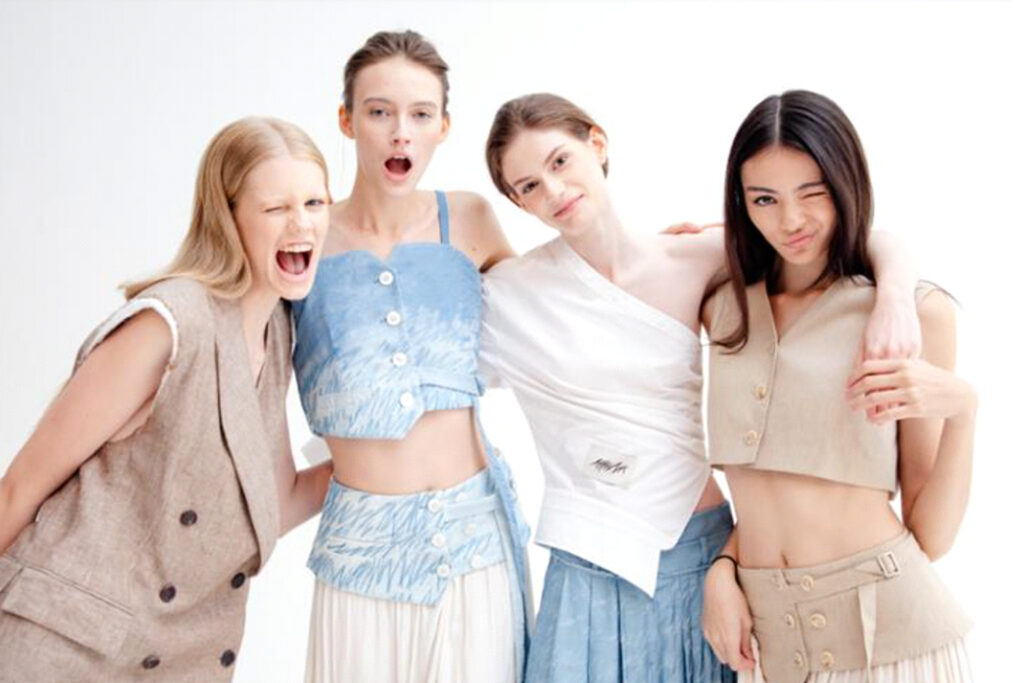
Importance of designer brands in women’s fashion. Luxury Clothing Designer
Designer brands hold a significant place in women’s fashion, playing a crucial role in shaping trends, setting standards, and reflecting personal style and social status. These brands are at the forefront of fashion innovation, consistently introducing new ideas and designs that influence the broader fashion landscape. Each season, designer collections set the tone for the colors, silhouettes, and styles that will become popular, making them key trendsetters. The influence of these brands extends beyond the runway, as high-street brands often draw inspiration from designer collections, making high fashion trends accessible to a wider audience.
For many women, clothing serves as a powerful form of self-expression, and designer brands provide unique and distinctive pieces that allow individuals to showcase their personality and taste. Wearing luxury clothing can be a statement of confidence, individuality, and an appreciation for high-quality craftsmanship. The unique designs and superior quality of materials used in designer fashion create garments that not only look stunning but also feel luxurious to wear.
Investing in designer brands often means investing in longevity. The superior quality of materials and the meticulous craftsmanship ensure that these items can be worn season after season, maintaining their appearance and feel. This longevity makes designer pieces valuable additions to any wardrobe, providing timeless options that transcend fleeting trends. The durability and enduring style of designer garments make them worthwhile investments, as they remain relevant and fashionable over the years.
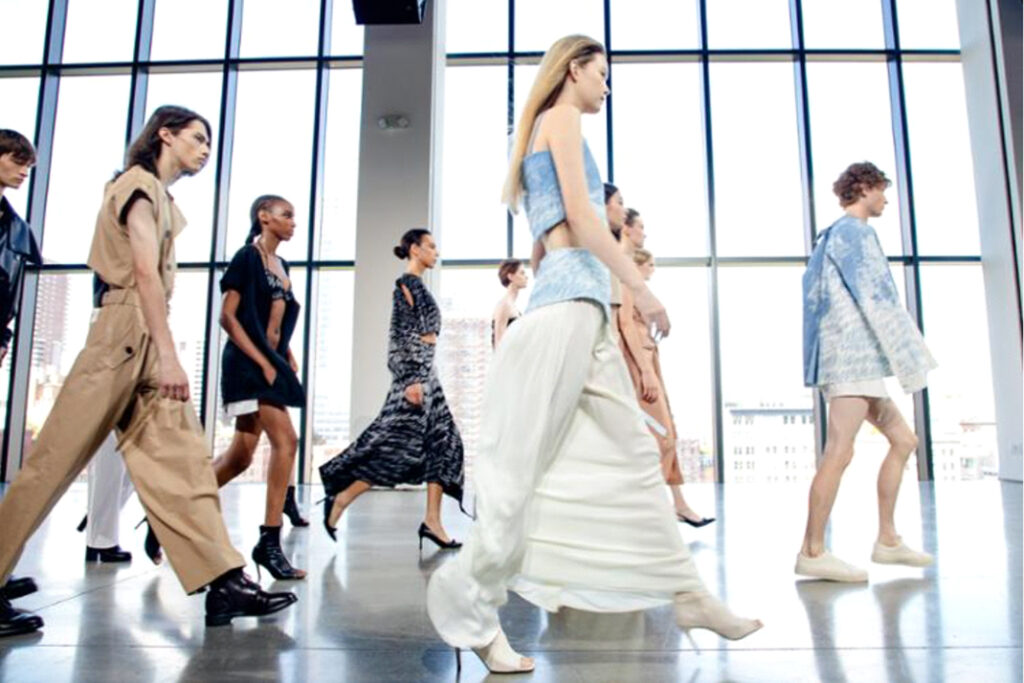
Characteristics of Luxury Clothing Designer Brands, Luxury Clothing Designer
Luxury clothing designer brands are distinguished by several defining characteristics that elevate them above mainstream fashion labels.
Quality craftsmanship and materials.
Fine craftsmanship and premium materials are essential components of luxury fashion. These businesses work with knowledgeable craftspeople who painstakingly and precisely create each item of clothing. Every element of the clothing, from the hand-sewn seams to the elaborate embroidery and delicate decorations, is expertly completed to guarantee exceptional quality. High-quality leathers and exotic skins are frequently utilized, along with rare and opulent textiles like silk, cashmere, and fine wool that are purchased from the best vendors worldwide. The focus on materials and craftsmanship improves the clothing’s comfort and longevity in addition to its visual attractiveness.
Exclusive designs and limited editions.
Luxury fashion designer brands are synonymous with exclusivity and rarity. Each collection is meticulously curated, with designs often unique and limited in production. This exclusivity ensures that owning a piece from a luxury brand is a privilege reserved for a select few. Many brands offer bespoke or made-to-order services, allowing clients to personalize their garments according to their preferences.
Limited editions and special collaborations with artists, celebrities, or other brands further enhance the exclusivity of these pieces, making them highly coveted among fashion enthusiasts and collectors alike. The distinctive designs and limited availability add to the allure of luxury fashion and contribute to its status as a symbol of prestige and sophistication.

High price points and exclusivity.
The high price point of luxury clothes designer labels is one of their distinguishing features. The exquisite craftsmanship, the use of pricey materials, and the uniqueness of the designs are all reflected in the high price tags. Luxury companies are providers of unmatched workmanship and quality, appealing to a discerning consumer base that places a premium on exclusivity, elegance, and status. Purchasing high-end apparel is just one aspect of investing in luxury fashion; another is becoming a status and taste signal. High price tags impose exclusivity, which keeps luxury apparel aspirational and appealing in the cutthroat international market.
Top Luxury Clothing Designer Brands Worldwide
Luxury clothing designer brands hold a revered status in the fashion industry, each known for distinctive styles, impeccable craftsmanship, and a rich heritage.
⦁ Chanel: Timeless elegance and innovation.
Chanel, founded by Coco Chanel in 1910, embodies timeless elegance and pioneering innovation in fashion. Renowned for its iconic tweed suits, little black dresses, and quilted handbags, Chanel revolutionized women’s fashion by introducing comfort and sophistication into everyday wear. Coco Chanel’s legacy continues under Karl Lagerfeld and now Virginie Viard, maintaining the brand’s reputation for effortless chic and modern luxury. Chanel’s commitment to craftsmanship and attention to detail make each piece a testament to refinement and enduring style.
⦁ Gucci: Bold, eclectic, modern luxury, and luxury clothing designer.
Gucci was founded in Florence in 1921 by Guccio Gucci and has become synonymous with audacity, eclecticism, and modern luxury. Alessandro Michele’s creative direction has enabled Gucci to embrace maximalism via the use of vibrant colors, intricate patterns, and unconventional designs. The company’s double-G insignia, as well as the GG Marmont handbag, are internationally recognized as symbols of luxury clothing designer and status. Gucci’s ability to integrate avant-garde and historical elements has captured the attention of fashion-forward individuals all over the world, cementing its position as the leading luxury brand of the twenty-first century.
⦁ Dior: Classic femininity and haute couture.
Christian Dior founded Dior in 1946, and the brand is linked with classic femininity and high couture quality. Dior’s innovative “New Look” collection, with nipped waists and voluminous skirts, transformed postwar fashion and earned the company instant renown. Dior continues to exemplify elegance and sophistication under the creative direction of designers such as Raf Simons and Maria Grazia Chiuri. The Lady Dior handbag, J’adore perfume, and exquisite ball dresses that graced the haute couture runways illustrate Dior’s dedication to craftsmanship, luxury, and everlasting beauty.
⦁ Versace: Glamour, bold patterns, and opulence.
Gianni Versace launched Versace in 1978, and the brand is known for its opulence, vibrant designs, and grace. Versace has been synonymous with Italian affluence and sensuality with to its Medusa emblem, vivid colors, and striking designs. Following the untimely death of her brother, Donatella Versace assumed the role of creative director and has since continued to push the envelope with audacious designs that honor femininity and strength. Versace’s distinctive design, which combines lavish fabrics, vibrant colors, and baroque motifs, is well-liked by influencers, celebrities, and fashionistas around.
These top luxury clothing designer brands exemplify the pinnacle of fashion excellence, each contributing uniquely to the global fashion landscape with their distinctive aesthetics, innovative designs, and unwavering commitment to luxury and craftsmanship.
Emerging Luxury Brands Making Waves
Several up-and-coming luxury firms have drawn notice in the fast-paced world of fashion thanks to their inventive designs, distinctive viewpoints, and novel approaches to luxury.
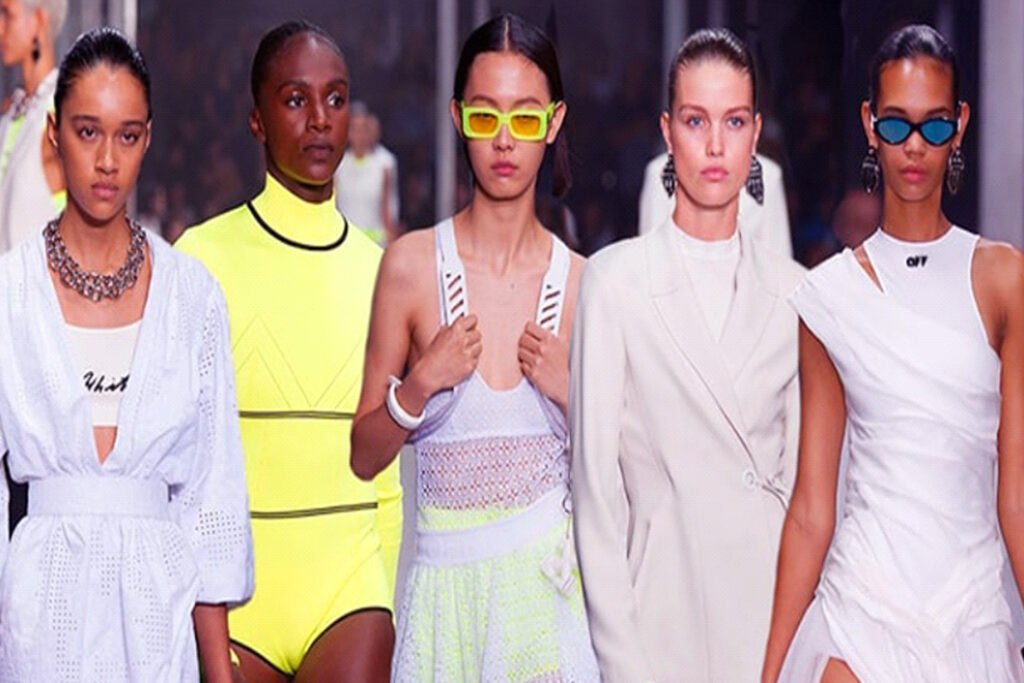
Off-White: Streetwear meets luxury clothing designer
Since its founding in 2012 by Virgil Abloh, Off-White has revolutionized the premium fashion industry by skillfully fusing upscale workmanship with streetwear aesthetics. Reputable for its iconic diagonal stripes, quote marks, and industrial themes, Off-White connects the dots between high-end couture and street style. Through partnerships with Nike, Ikea, and other powerful partners, the brand’s popularity skyrocketed, solidifying its position as a worldwide phenomenon. Contemporary luxury designs with an approachable edge are appealing to the younger generation, which is the target market for Off-White.
Balmain: Modern French sophistication
Balmain, which is creatively directed by Olivier Rousteing, is a dazzling brand that epitomizes modern French refinement with its bold shapes and elaborate embellishments. Since its founding by Pierre Balmain in 1945, the company has grown to become a global emblem of luxury and sophistication, beloved by celebrities and style icons alike. With a signature look that combines rock ‘n’ roll flare with Parisian elegance, Balmain creates collections that are all about confidence and power. Balmain stands apart in the world of luxury fashion because to its distinctive jackets, structured dresses, and adorned accessories, which demonstrate the brand’s dedication to workmanship and couture tradition.
Valentino: Romanticism and contemporary elegance
Valentino is the pinnacle of modern elegance and romance in luxury fashion, having been created by Valentino Garavani in 1960. Valentino epitomizes refinement and femininity with its delicate gowns, elaborate lacework, and striking crimson skirts. Valentino’s history has been upheld by creative directors Maria Grazia Chiuri and Pierpaolo Piccioli, who have included contemporary elements to their creations. Conscientious fashion fans who value timeless beauty and flawless craftsmanship have developed a devoted fanbase for the brand because to its Rockstud accessories and effortlessly stylish ready-to-wear designs.
Choosing the Right Designer Brand for Your Style
It takes knowledge of your tastes, research into various fashion houses, and the identification of collections that suit your aesthetic to choose the ideal designer brand that complements your own style.
Understanding your personal style
Determining your style is crucial before investing in designer goods. Think on your tastes, way of life, and the impression you want to give off with your wardrobe. Which style—classic elegance, avant-garde innovation, or minimalist sophistication—draws you in? Knowing these factors can help you choose companies that most accurately capture your own style and sense of style.
Matching brands to your fashion preferences
Once you have a clear understanding of your personal style, explore designer brands that align with your preferences. Each fashion house has a distinct identity and aesthetic. For example, Chanel embodies timeless elegance and sophistication with its iconic tweed suits and quilted handbags. Gucci offers bold, eclectic designs that blend heritage with modernity, appealing to those who appreciate vibrant colors and daring patterns. Dior, known for classic femininity and haute couture craftsmanship, attracts individuals seeking refined, ladylike silhouettes and exquisite detailing. Versace, on the other hand, exudes glamour and opulence through its bold prints, luxurious fabrics, and provocative designs.
Popular Collections and Iconic Pieces
Researching popular collections and iconic pieces from different designer brands can provide insight into their design philosophy and craftsmanship. For instance, Chanel’s 2.55 flap bag and Gucci’s GG Marmont collection are celebrated for their timeless appeal and status-symbol status. Dior’s “New Look” collection and Valentino’s Rockstud shoes exemplify the brands’ commitment to innovation and luxury. By exploring these collections, you can discover pieces that resonate with your style and elevate your wardrobe with timeless investment pieces.
The Role of Influencers in Promoting Luxury Brands
In the internet age, influencers have become increasingly important in influencing the luxury fashion industry. Their influence and scope have fundamentally altered the way upscale companies engage with their clientele, creating new avenues for marketing and promotion.
Impact of social media on luxury fashion
Social media platforms such as Instagram, TikTok, and YouTube have altered the way people use and perceive designer clothing. Influencers, with their large and loyal fan following, are essential to this shift. They offer a genuine and honest perspective on upmarket fashion, making it more accessible to a broader audience. Through their posts, stories, and videos, influencers provide in-the-moment assessments, style guidance, and behind-the-scenes glimpses at fashion shows and events. Traditional advertising cannot equal this intimacy and directness.
Social media platforms’ visual format enables influencers to present luxury goods in situations that are both aspirational and accessible. Potential customers may more easily picture how these upscale items might fit into their own lives thanks to this visual storytelling. Influencers frequently draw attention to the fine craftsmanship, exceptional features, and distinctive qualities of luxury goods, highlighting their worth and appeal. Purchasing decisions may be greatly influenced by this real and compelling information, particularly from younger, tech-savvy consumers who follow the advice of their favorite influencers. It also increases brand exposure.
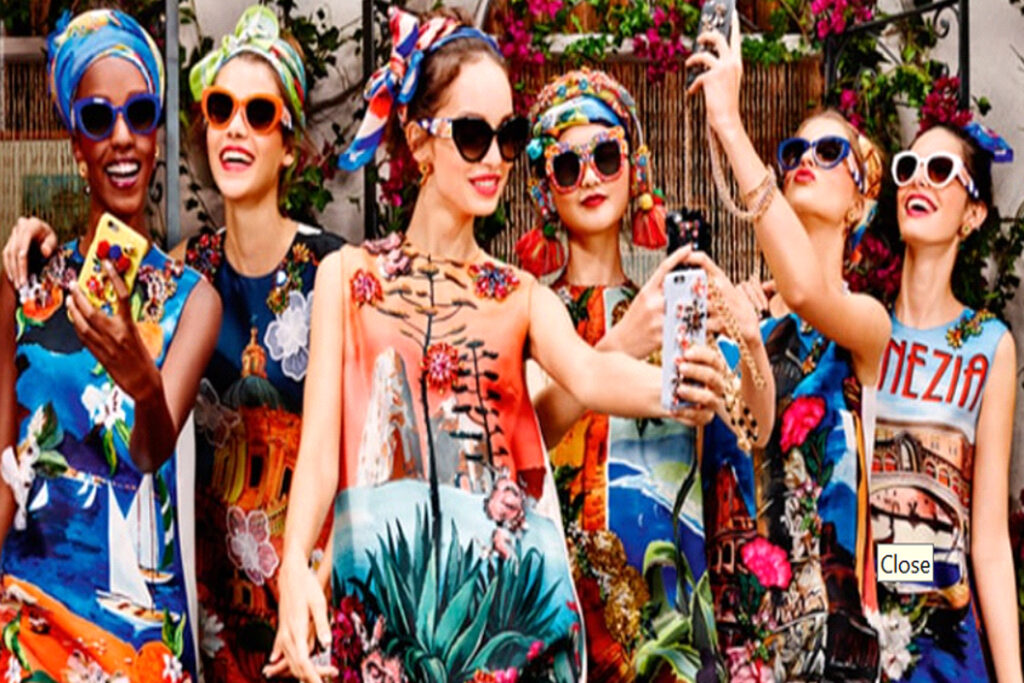
Collaboration between designers and influencers
The collaboration between designers and influencers has become a powerful strategy in the luxury fashion industry. By partnering with influencers, luxury brands can tap into new demographics and markets, enhancing their visibility and appeal. These collaborations often take the form of sponsored posts, exclusive product launches, or even co-designed collections.
For instance, influencers may be invited to fashion shows, where they document and share their experiences with their followers, generating buzz and excitement around the event. They might also receive exclusive access to new collections, allowing them to showcase these items before they hit the market. This instills a sense of exclusivity and expectation in their audience.
A few high-end companies have gone one step further and collaborated with influencers to create items. These limited-edition partnerships blend the influencer’s own style and audience insights with the brand’s creative know-how to create one-of-a-kind, highly sought-after products. These kinds of partnerships increase sales as well as the brand’s relatability and relevancy.
Luxury Fashion Events and Shows
In the fashion business, high-end brands’ status is upheld by exhibiting the newest collections, establishing trends, and hosting luxury fashion events and shows. These occasions serve as a stage for designers to share their imaginative ideas, but they also serve as a major cultural phenomenon that has an international impact on fashion.
Fashion weeks in major cities
Fashion weeks, which take place in major cities like New York, London, Paris, and Milan, are the high points of the fashion calendar. These events feature the spring/summer and fall/winter collections twice a year, in February and September, respectively.
Often considered the most prestigious, Paris Fashion Week is recognized for its glitzy runway shows featuring luxury brands like Chanel, Dior, and Louis Vuitton. Milan Fashion Week is unique because of its focus on Italian luxury and the opulent designs on show from brands like Versace, Gucci, and Prada. New York Fashion Week is famed for its diversity and inventiveness, exhibiting a mix of established designers and up-and-coming talent, while London Fashion Week is known for its avant-garde and cutting-edge fashion, showcasing designers like Burberry and Alexander McQueen.
These fashion weeks are an international spectacle that attracts celebrities, influencers, and business people. They are more than just a succession of runway events. They create a great deal of media attention, which fuels trends and establishes the mood for the next fashion season. These events have an impact that goes beyond the runway as the collections on display frequently serve as models for high-street clothes and set trends for the whole fashion industry.
Exclusive runway shows and their influence
The focal point of upscale fashion events is their exclusive runway displays. The purpose of these well-planned shows is to showcase the originality, skill, and inventiveness of luxury labels. Exclusive runway events, in contrast to regular fashion shows, frequently take place in distinctive and opulent locations, such as modern art galleries or historic palaces, boosting the total experience and bolstering the brand’s reputation.
There is an air of exclusivity and distinction about these exhibitions since they are invitation-only gatherings of buyers, influencers, celebrities, and fashion editors. These performances have an effect that goes much beyond the audience. Millions of fashion fans across the globe can experience the collections in real time thanks to live broadcasts and social media coverage, broadening the brand’s audience and impact. These runway displays have a strong emotional and visual effect that increases demand for the next seasons and boosts sales and brand loyalty.
The Future of Luxury Fashion
Luxury fashion is expected to evolve into a dynamic fusion of innovation and tradition in the future, fueled by changing customer preferences, technology developments, and an increased emphasis on sustainability.
The incorporation of digital technology is one of the biggest shifts that are coming. Virtual reality (VR) and augmented reality (AR) have the potential to completely transform how customers view high-end fashion. The splendor of luxury clothes will be brought into the digital sphere through immersive experiences like virtual showrooms, digital fashion shows, and augmented reality try-ons. Companies are now investigating these technologies in order to provide more customized and interesting consumer experiences, enabling consumers to engage with products in previously unheard-of ways.
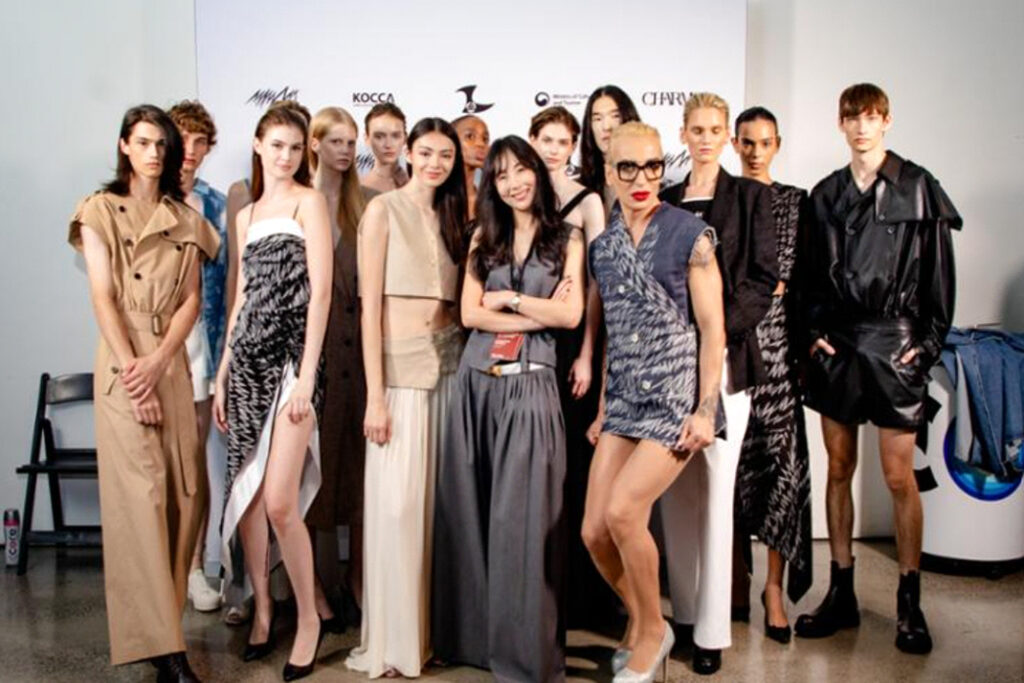
In conclusion, sustainability, technical developments, digital integration, customization, globalization, and ongoing social media impact will all contribute to the dynamic and inventive nature of luxury fashion in the future. Luxury businesses will prosper if they embrace these trends and change with the times to provide customers with an intriguing fashion selection that combines tradition and contemporary.
Conclusion
In conclusion, a world of exquisite workmanship, timeless beauty, and unmatched refinement may be discovered by delving into the world of luxury apparel designer companies for women. These labels stand for more than simply upscale clothing; they also convey a way of life, a declaration of uniqueness, and a dedication to excellence. From Alexander McQueen’s avant-garde designs to Chanel’s timeless appeal, every designer has a distinct vision for the world of luxury fashion.
Investing in luxury apparel means more than just buying clothes—it means obtaining a work of art, a status symbol, and an heirloom that will be treasured for years to come. There is a premium brand to fit every taste and inclination, whether you are drawn to the bright, vivid designs of Versace or the minimalistic elegance of The Row.
Check out the newest collections and classic items from Chanel on their official website to learn more about the world of luxury fashion. Visit Stella McCartney’s website to see her creative and environmentally conscious designs if you’re interested in learning more about the sustainable side of luxury fashion.
Also Read This Post: Effortless Bohemian Beauty.

3 Comments
Pingback: Write for Us + Fashion: Paid Guest Posts Accepting Submissions
BYHDkrZO
Pingback: Discover the Best Korean Winter Fashion for a Stylish Season 2024 - UA Marketing World